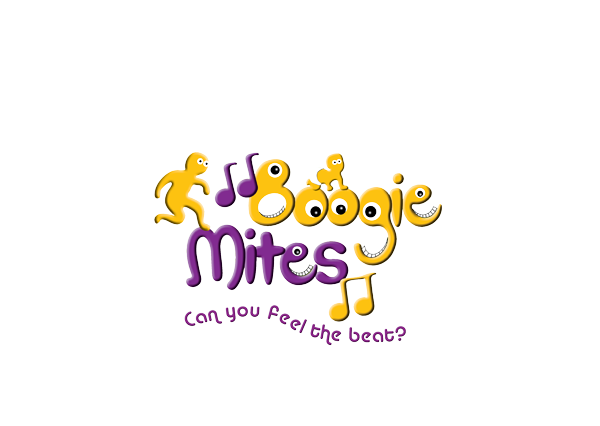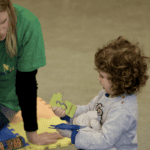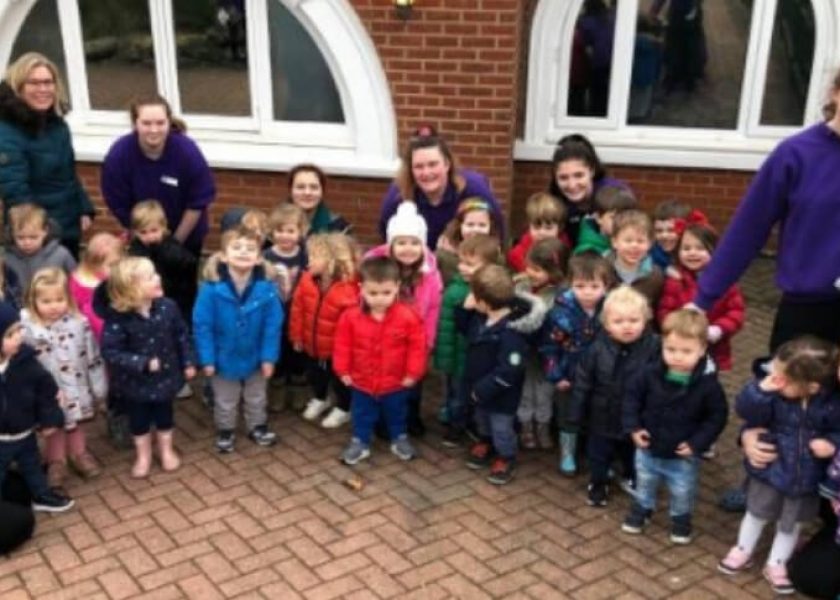
What you’ll find in this blog:
- the link between music and maths
- practical music and maths activities for you to try
- make maths fun with our song download
- our maths programme
- how to join our music and maths webinar
This month at Boogie Mites we are focusing on maths, particularly how music and maths support the early years foundation stage (EYFS).
Since reviewing the Department for Education changes to the EYFS for September 2021, we found it important to discuss the modifications to mathematics. The changes within the EYFS maths area of learning will see shape, space and measures removed as an Early Learning Goal (ELG). More focus will be placed on numbers and patterns within the Numerical Patterns ELG, as this is the strongest predictor for later maths outcomes.
This focus on patterns is a happy surprise for us here at Boogie Mites. We have always understood the importance of regular music-making in laying strong foundations for maths, particularly strengthening recognition of patterns. Music, like maths, is based on recurring patterns and sequences. When children engage in music, such as marching to a beat, banging a drum or singing, they are reinforcing the parts of the brain that are used when doing maths. Here are some of the ways in which music supports maths:
- Music is built from recurring mathematical patterns and sequences such as beat, tempo and rhythm. Children can develop mathematical thinking as they notice and respond to this.
- A sense of pattern supports children’s learning. This enables them to make links and notice connections between events and ideas, promoting thought and the capacity to learn.
- If, as mathematicians suggest, maths is the science of pattern, then music and dance are the art of pattern.
- Early exploration of movement and sound, combined with the brain’s drive for pattern, leads to the recognition of regularities. These regularities, such as, ordering, classifying, sequencing and predicting supports a foundation for maths.
The link between music and maths
‘Doing mathematics is a bit like playing a musical instrument’, an article from the Guardian points out, ‘It requires practice…music is full of mathematics. Rhythm is about exploring the way different numbers interact.’
Music, in fact, is built from recurring mathematical patterns and sequences. Research has shown that participating in music activities boosts mathematical thinking and skills. In turn, creating a fun way to increase practitioner’s and children’s confidence in the subject.
The first step is to develop our own confidence to sing and dance alongside our children. The second is knowing how to find maths in music, valuing sound and movement patterns, and understanding their relevance to maths learning and development. Boogie Mites programmes are beginner friendly and easy to use so you don’t need to have a qualification in music, dance or maths to teach successfully!
Practical music and maths activities for you to try
The first step is to develop our own confidence to sing and dance alongside our children, secondly, we need to understand how to find maths in music and understand the relevance to maths development.
Here are some music activities which involve developing an awareness of pattern and sequencing:
Keeping the Beat
- Choose a song or nursery rhyme
- Encourage the children to clap along in time (if they are able, they can be encouraged to count as well : 1,2,3,4/1,2,3,4/1,2,3,4)
- Now develop the sequence. Instead of just clapping, add in a tap-your-knees. So clap-clap-clap-clap becomes clap-tap-clap-tap/clap-tap-clap-tap
- Ready to take it further? Add in a stamp: clap-tap-clap-stamp/clap-tap-clap-stamp
You can do this activity inside or outside and it’s a great way to get children focused and working together after free play.
This activity is great for any age – as long as children are engaged they are learning: they don’t have to be getting it ‘right’: that comes with practice. Make it as simple or as complicated as you think your group need.
Follow – the – Leader: Drumming Nursery Rhyme
For this activity, everyone will need a drum (a shoebox or plastic tub etc). Sit the group in a circle and give them each a drum to play with their hands. Explain that you will play a drumbeat which is based on a nursery rhyme/fairy tale character. Ask them to follow your lead as you beat the drum.
- Start off with a simple beat. For example, “Big bad wolf/Big bad wolf” and say the words as you drum. Keep going until everyone is joining in as a group and chanting out the words (if this is appropriate for their age).
- Now try ‘Humpty Dumpty’. Say the words with the same rhythm as the nursery rhyme. This is a syncopated rhythm, very different from your previous steady 1,2,3,4 beat. Encourage children to say the words and bang their drums to this new rhythm.
- Keep going with different characters and ask the children to suggest their favourites.
- With pre-schoolers, you can develop this activity to create a sequence of patterns.
This can get very tricky! Remember to start simple and get more complicated as and when children are ready for it. The key is practice and repetition. So think about how you can incorporate these activities into circle time, outside time, transitions etc.
Make maths fun with our song download
We have written a new maths song to make numbers fun and exciting for early years children and to promote our maths programme.
At Boogie Mites, we want to challenge the stigma that maths is ‘too difficult’ at an early stage. We want to make maths fun through music in early years.
You can download our new song Hey, Hey, Say It Again, which supports number bonds to 10 and is suitable for 4-5 year olds.
Our maths programme
You can listen to clips of songs from our maths programme here: Maths Soundcloud Playlist
Our maths programme develops children’s maths from the age of 2, supporting the foundations ready for learning number bonds to ten and other maths learning goals in Year R. We understand that EYFS planning can be time consuming, so here at Boogie Mites we have created fun, engaging and brain boosting music activities that meet the criteria for the EYFS.
Our maths programme has been reviewed and recommended by The National Numeracy parental engagement pedagogical team:
‘I have spent a lovely few hours listening to the songs and following the activities in my head. It is a super resource and you have incorporated excellent direct links to the EY Maths standards for mathematics. The activities contribute to developing number sense and pattern early and this is so important! I have no hesitation in recommending this for inclusion on National Numeracy’s Family Maths Toolkit.’
Sue Skyrme, National Numeracy.
Our Music & Maths webinar!
Music is built on numerical sequences and patterns; discover how neuro-musical evidence shows us that music can provide a valuable tool for laying strong foundations for mathematical thinking.
Join us, on October 17th at 7-8:15pm, for our live webinar: “Music Making Supporting Mathematical Minds” and learn how to make maths fun in early years. Don’t worry if you can’t make the live time – the session will be recorded, and you will have access to it for one week following the live webinar.
For enquiries, contact Sue Newman, Boogie Mites director: [email protected] or call her on 023 92 817274






